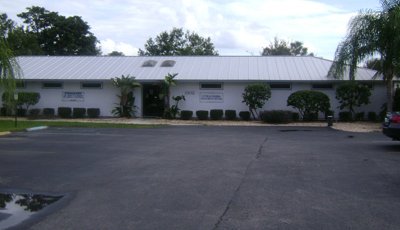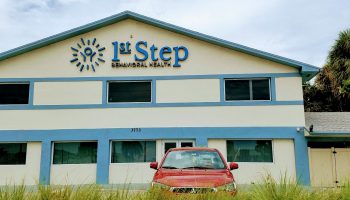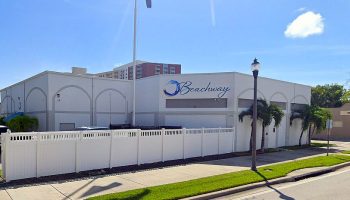Central Florida Treatment Center Fort Pierce

About Central Florida Treatment Center Fort Pierce
You’ll find Central Florida Treatment Center Fort Pierce in Fort Pierce, Florida. It’s about an hour north of West Palm Beach. Since 2006, this outpatient clinic has provided specialized opioid use disorder treatment for Central Florida adults. You can access personalized medication assisted treatment (MAT) to start or continue your recovery journey.
Multiple Medication Options
What stands out most is their wide variety of FDA approved medications. They understand that there are many paths to recovery and everyone’s journey is different. You may be prescribed methadone, Suboxone, Vivitrol, Sublocade, or Brixadi to alleviate withdrawal symptoms and cravings.
I also think it’s great that they offer medication tapering assistance. With medication assisted treatment, you typically reduce dosing as you progress in recovery. You’ll have ongoing support to become completely medication free and sustain recovery at a pace that works for you.
Grant Funding Available
Another standout feature I noticed is they provide treatment grants. They accept multiple private and public insurers, including Humana, Molina, Cigna, United Healthcare, and Medicare. You can still get the help you need without insurance. They provided a grant funded program for eligible clients. That way, finances won’t stop you from starting recovery.
| Levels of Care | Detox Service Setting | Programs | Payment Options | Medications Offered |
|---|---|---|---|---|
|
In outpatient therapy, you’ll attend therapy sessions several times each week while living at home. This is ideal if you have a strong support system and a lower risk of relapse. Outpatient treatment offers flexibility to maintain work, school or family obligations. |
||||
|
Outpatient detox gives you access to medically supervised withdrawal services while still allowing you to live at home. You’ll attend a clinic for treatment and monitoring. This flexible option is suitable for those with mild to moderate withdrawal symptoms who have strong support systems. |
Medication assisted treatment combines medication and counseling to manage withdrawal and reduce cravings for opioid and alcohol addiction. Medications may include methadone, buprenorphine or naltrexone. MAT is tailored to your needs so you can actively participate in your treatment journey. |
|||
|
Adult programs address the substance use and life challenges specific to adults. Therapists can deliver sessions in individual, group and family settings. Services often include job support and life skills training in a structured environment. |
Young adult programs are designed for individuals who are transitioning into adulthood. Topics of discussion typically include identity, independence and peer relationships. Providers may also offer life skills training and career support. |
Women's programs offer a safe and supportive space to focus on gender specific issues such as trauma, family roles and mental health conditions. Therapists tailor the sessions to address women's needs and foster empowerment in a healing and nurturing environment. |
Men's programs address substance use while also considering the social pressures, family roles and mental health concerns that are specific to men. You’ll learn healthy coping mechanisms as you build emotional resilience and develop communication skills. |
|
|
Medicaid
|
State Family Services
|
Self Pay
|
||
|
Methadone
|
Levels of Care
In outpatient therapy, you’ll attend therapy sessions several times each week while living at home. This is ideal if you have a strong support system and a lower risk of relapse. Outpatient treatment offers flexibility to maintain work, school or family obligations.
Detox Service Setting
Outpatient detox gives you access to medically supervised withdrawal services while still allowing you to live at home. You’ll attend a clinic for treatment and monitoring. This flexible option is suitable for those with mild to moderate withdrawal symptoms who have strong support systems.
Medication assisted treatment combines medication and counseling to manage withdrawal and reduce cravings for opioid and alcohol addiction. Medications may include methadone, buprenorphine or naltrexone. MAT is tailored to your needs so you can actively participate in your treatment journey.
Programs
Adult programs address the substance use and life challenges specific to adults. Therapists can deliver sessions in individual, group and family settings. Services often include job support and life skills training in a structured environment.
Young adult programs are designed for individuals who are transitioning into adulthood. Topics of discussion typically include identity, independence and peer relationships. Providers may also offer life skills training and career support.
Women's programs offer a safe and supportive space to focus on gender specific issues such as trauma, family roles and mental health conditions. Therapists tailor the sessions to address women's needs and foster empowerment in a healing and nurturing environment.
Men's programs address substance use while also considering the social pressures, family roles and mental health concerns that are specific to men. You’ll learn healthy coping mechanisms as you build emotional resilience and develop communication skills.
Medications Offered
Accreditations
Contact
- Monday 5AM - 11AM
- Tuesday 5AM - 11AM
- Wednesday 5AM - 11AM
- Thursday 5AM - 11AM
- Friday 5AM - 11AM
- Saturday 7AM - 9AM
- Sunday 7AM - 8AM

Mariah Bourne earned a Master of Arts in Community Social Psychology from the University of Massachusetts Lowell. She has worked as a research associate on addiction and treatment studies, including opioid craving interventions. Today, she is a freelance writer. She’s passionate about sharing knowledge and resources to help others start their recovery journey.

Peter W.Y. Lee is a historian with a focus in American Cold War culture. He has examined how popular culture has served as a coping mechanism for the challenges and changes impacting American society throughout the twentieth century.




